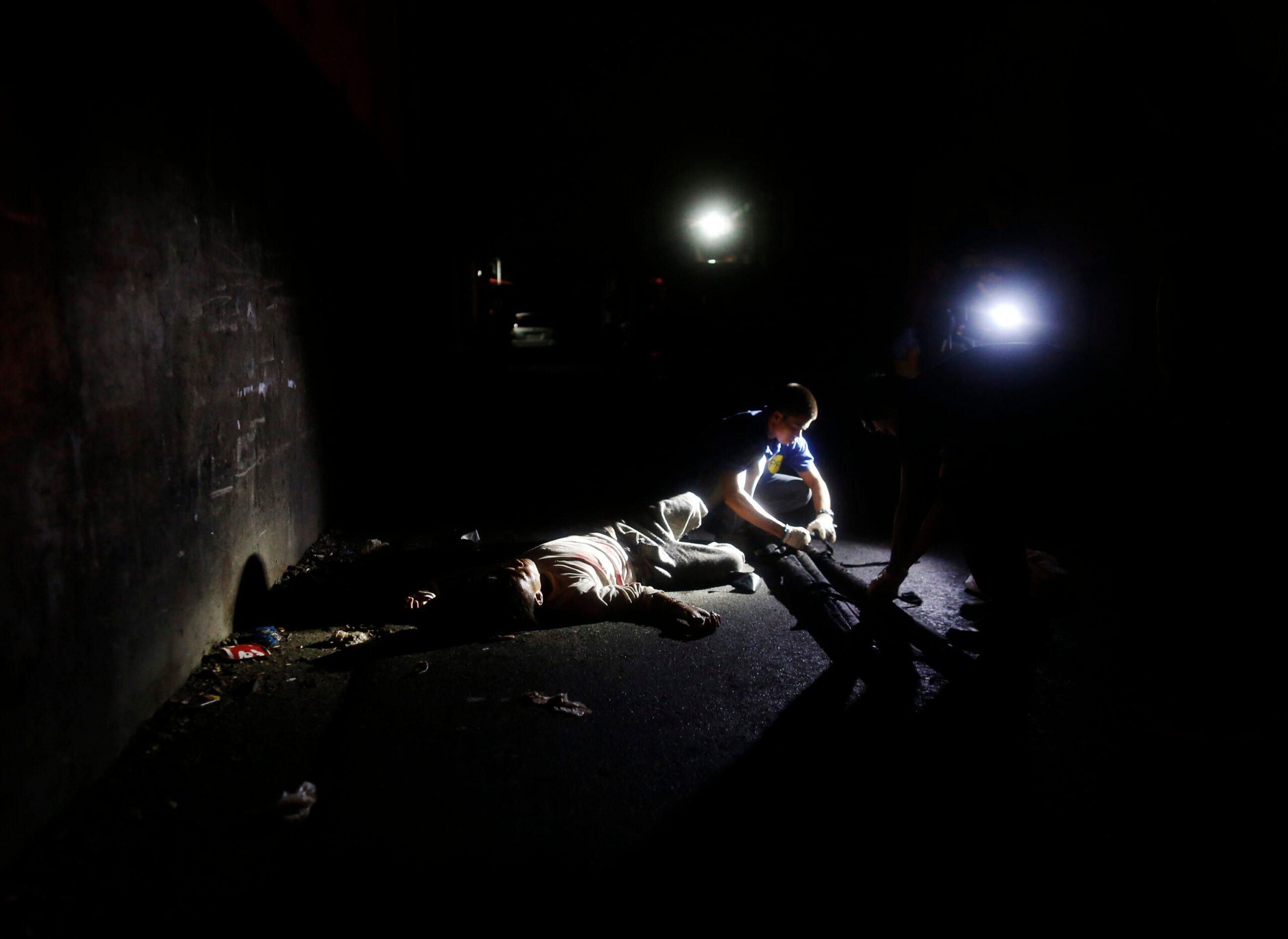SUMMARY
This is AI generated summarization, which may have errors. For context, always refer to the full article.

MANILA, Philippines – Former Commission on Human Rights (CHR) chairperson Loretta Ann “Etta” Rosales expressed concern over the “alarming and rapid developments” as President Rodrigo Duterte’s war on drugs continues.
In an open letter to former justice secretary and now senator Leila De Lima, Rosales noted that she supports the administration’s efforts to “unravel the clandestine, cancerous, and criminal network” of the illegal drug trade that has plagued the Philippines.
However, she said, these efforts mostly target Filipinos living below the poverty line.
“I am one with people in expressing alarm that the war on drugs is brutally taking its toll on the hundreds upon hundreds of poor people nationwide who live at the fringes of society, summarily executed without regard to their basic right to life and security as human beings and with total disregard to due process and the rule of law,” she wrote.
Data from the Philippine National Police (PNP) showed that from the time Duterte took office until August 1, there have been 402 “drug personalities” killed during police operations.
This figure does not include victims of summary executions.
Rosales, who headed the CHR from 2010 to 2015, added that the spate of extrajudicial killings “legitimizes impunity” and leads to the total disregard of law.
“In today’s daily practice, lives are being snuffed out among nameless, faceless citizens who have no access to protection for their lives, and this is being done with impunity by trigger-happy law enforcers and unidentified hoodlums in motorbikes,” she said.
“More than anything else, today’s practice legitimizes impunity and the road towards a total breakdown of law and order.”
De Lima, who is also a former CHR head, chairs the Senate committee on justice and human rights which will probe the recent spike in drug-related killings in the Philippines. (READ: Senate to start probe into drug-related killings mid-August)
Malacañang, meanwhile, has said that it welcomes the planned investigation of the Senate.
Death penalty
Rosales’ open letter also touched on the issue of death penalty, which is again a subject of debate in the country as Duterte wants it restored.
She pointed out the “disturbing session” in the Senate on Monday, August 8, where Senator Manny Pacquiao’s first privilege speech focused on the push for the death penalty.
The neophyte senator was also called out by Senator Francis Pangilinan after he joked about the mode of carrying out executions. (READ: Death by hanging? Pacquiao jokes, ‘Sisipain lang po ‘yung upuan’)
Rosales said the “misplaced humor” in the Senate reflects possible apathy to human rights.
“Deliberations on the restoration of the death penalty were treated with misplaced humor and cynicism by some on the plight of convicts sentenced to death, derived perhaps from an apparent apathy to the import of international standards and norms on human rights, humanitarian and criminal law,” she said.
Restoring the death penalty would go against international treaties where the Philippines is a signatory, including the Second Optional Protocol to the International Covenant on Civil and Political Rights in 2006.
Countries that ratified the Second Optional Protocol cannot carry out the death penalty.
Aside from being a “gross breach of contract,” Rosales said the restoration of the death penalty would bring problems given the “flawed criminal justice system.”
“As citizens we must respect these agreements,” she said. “However, death penalty if restored, even as breach to international agreements, cannot be implemented without litigation and conviction.”
The Philippines abolished the death penalty under the 1987 Constitution, making it the first country to do so. It was, however, reimposed during the term of President Fidel Ramos.
Following the signing of the Second Optional Protocol to the International Covenant on Civil and Political Rights, the death penalty was again abolished under the administration of Gloria Macapagal-Arroyo in 2006. – Rappler.com
Add a comment
How does this make you feel?
There are no comments yet. Add your comment to start the conversation.